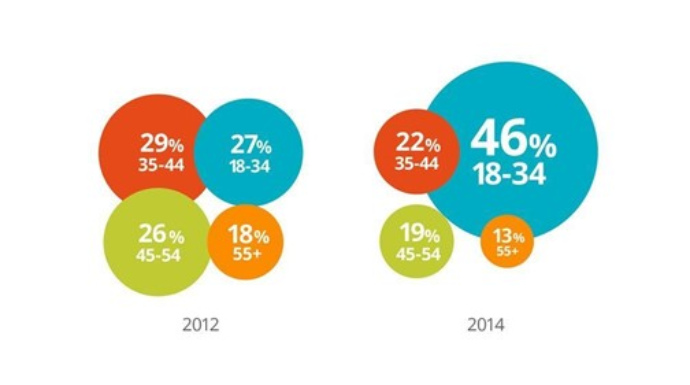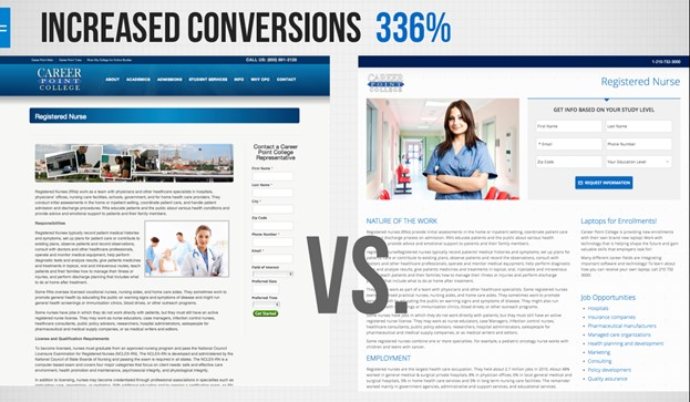B2B buying cycles are getting longer and more complex, and the more time you spend in the funnel, the more likely you are to take missteps that could destroy your marketing budget.
Many businesses fall victim to common mistakes, so it's not the end of the world if you happen to make one. But if you want to safeguard your budget, you first need to learn what the most common pitfalls are.
This article outlines seven steps you can take to avoid those common pitfalls and protect your marketing budget.
1. Targeting Only the Highest-Level Executives
If you're marketing only to C-suite or executive-level managers, re-evaluate your strategy. Though 64% of C-suite executives do have final say, 24% of those who also play a role in buying decisions are not in the C-suite, according to a Google study.
You can't downplay the role of the non-C-suiters in influencing the signoff. If you spend your marketing budget on the C-suite alone, you run the risk of not reaching other key decision-makers in an organization.
For instance, if you're marketing to a manufacturing company that has different locations around the region and you want to capture their attention, tailor your messages to the head of each factory location, not just the CEO.
Including non-C-suite decision-makers in your marketing strategy gives you a broader yet still-targeted reach and maximizes your opportunities.
2. Ignoring the Millennial Audience
Millennials now make up 46% of all B2B buyers—almost half—according to Google. Moreover, 18-34-year-olds account for almost half of B2B researchers.

(Source: Think With Google)
Because more and more Millennials are joining B2B companies and influencing buying decisions, it's a huge mistake to not consider them when crafting your marketing strategy. Allocate a portion of your funds to research the content and media channels that various age groups are using.
3. Focusing Solely on Generating New Leads
It's crucial to actively grow your customer base to sustain your business, and that means acquiring leads. But sometimes companies focus their marketing efforts on generating leads alone, and they forget about other objectives—lead nurturing, for example.
If your only focus is lead generation, what do you do once those leads are in the bag? You risk losing them. Not all prospects are ready to convert. Generating new leads is only half the battle.
In the B2B world, where the sales cycle is longer, it pays to have a fuller approach with multiple objectives: brand awareness, reputation management, lead generation, lead nurturing, and client retention.
4. Not Having an Adaptive Strategy
Change is inevitable. Technologies come and go. Trends emerge and fade away. Data becomes obsolete. If you want to get the most out of your marketing budget, you must adapt to those changes.
For example, the COVID-19 crisis has challenged the status quo for millions of businesses worldwide. The economy is extremely volatile, and it is uncertain what the future holds. If a similar event shakes up your marketing budget, you must adapt if you want to survive.
A good marketing plan is agile. Assess your budget changes every quarter, and be open to increasing or decreasing the budget for certain tactics.
5. Not Doing A/B Tests
It's a costly mistake to overlook A/B-testing, or split-testing, which is an essential part of marketing. Without testing variables in your campaigns, it's impossible to determine what actually works. By spending just 5% more of your budget on split-testing, you'll protect your marketing budget from being wasted on tactics and audiences that aren't converting.
Look at how this single A/B test resulted in a 336% increased conversion.

(Source: Unbounced)
Whenever you try new strategies or marketing tactics, regularly perform A/B tests to differentiate between tactics that work and those that are budget-eaters. You'll be surprised at the increase in the efficacy of your campaigns.
6. Forgetting the 'Social' in 'Social Media'
Some B2B companies use social media as a billboard to broadcast their offers, which is a mistake. Social media is not just an advertising channel.
Imagine speaking with someone who talks only about himself. That's what it's like if you use your social only to advertise. Potential customers might view your brand in a negative light, which is counterproductive for your marketing budget.
Instead, view social media as a two-way medium. You have to bring value to the table if you want to maximize your gain from the medium.
Aim to understand your customers and how they use social media. Educate, engage, entertain, and inspire so that you provide value to your customers; only then can you make your company voice heard.
7. Not Measuring Results
52% of marketersadmit to their companies' having a subpar or even a nonexistent ability to measure and analyze the impact of their marketing efforts.
It's a common occurrence in both B2B and B2C: A business spends significant budget on marketing without developing a system to measure the results. But if you don't analyze your strategy's results, you run the risk of wasting budget and courting failure.
If you can't measure it, you can't improve it, as Peter Drucker puts it. To start measuring the effectiveness of your strategy, determine the metrics applicable to your campaigns: ROI, traffic, leads, engagement rate, time spent on-page, and CTR, among others.
If you perform results analysis in combination with split-testing, you can use all that data to improve your results and make the most out of your marketing budget in 2020 and beyond.




